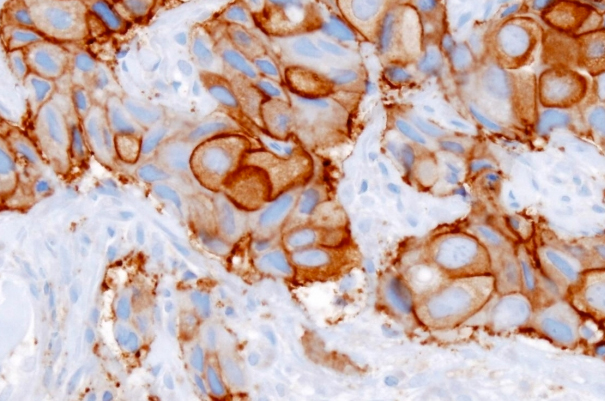Health
-

Break in the case for long COVID investigators
Research highlighting chronic inflammation opens path to treating illness that affects millions of Americans

-

The problem with the school smartphone debate
Study finds most districts already regulate devices. Is the real issue enforcement?

-

Just who gets a say at FDA public drug-approval hearings?
New research shows negative voices are relatively rare in drug approval hearings.
-

Your digital twin might save your life
AI, statistics offer new possibilities for personalized medicine
-

Time to legalize psychedelics?
Campus debate weighs therapeutic need vs. safety questions
-

How a toxin from the gut microbiome may help spark colorectal cancer
Findings suggest colibactin may be promising target for disease prevention

-
‘Best diet in America,’ but who knew?
The Harvard Chan School welcomed Lawrence Appel of Johns Hopkins to discuss his work testing the DASH diet.

-
Understanding what plagues us
A Radcliffe Institute for Advanced Study symposium looked at epidemics and emerging ways to contain contagion, both biological and societal.

-
Invisible world comes to light
Harvard Museum of Natural History brings art and science together as two Harvard scientists capture the “invisible,” and stunningly beautiful, life force that is everywhere: microbes.

-
Bees, social and solitary
Harvard study reveals underlying genetic basis for halictid bee communication and social behavior.

-
A step forward in DNA base editing
Scientists at Harvard University and the Broad Institute have developed a new class of DNA base editor that can repair the type of mutations that account for half of human disease-associated point mutations. These single-letter mutations are associated with disorders ranging from genetic blindness to sickle-cell anemia to metabolic disorders to cystic fibrosis.
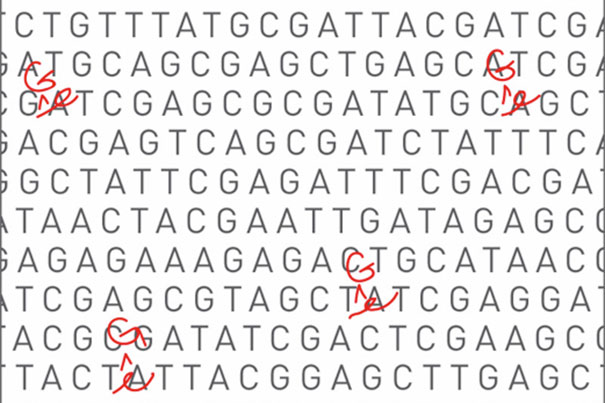
-
Heading off the post-antibiotic age
Antibiotic resistance has the potential to take millions of lives by 2050 if nothing is done to address the problem, Anthony Fauci, the head of the National Institutes of Health’s Institute of Allergy and Infectious Diseases, said at Harvard Business School.

-
Joanne Chang breaks down sugar
Flour Bakery owner Joanne Chang ’91 explained for 500 listeners the uses of sugar in a “Science and Cooking” lecture.

-
Checklists are boring, but death is worse
Systems aren’t sexy, but they save lives, says Harvard Medical School Professor and author Atul Gawande during HUBweek events in Boston.
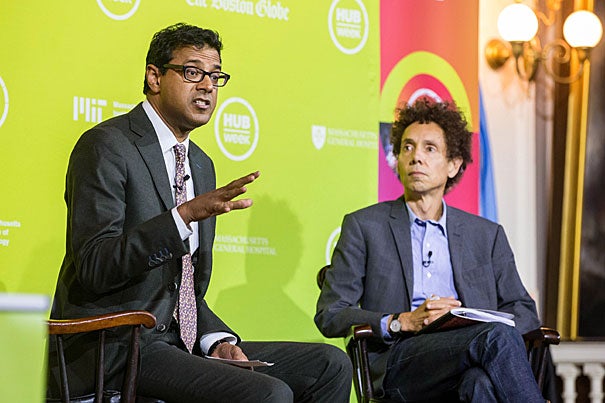
-
Gains in cancer treatment through eyes of a survivor
A Harvard-sponsored HUBweek panel discussed recent developments in cancer treatment, including advances in immuno-oncology.

-
Research rebuts idea that epidurals prolong labor
A study by BIDMC has found that long-standing concerns on the effects of epidurals on the second stage of labor may be misguided and out of date.

-
A new era in the study of evolution
Harvard biologist Jonathan Losos talks about his new book, “Improbable Destinies: Fate, Chance, and the Future of Evolution.”
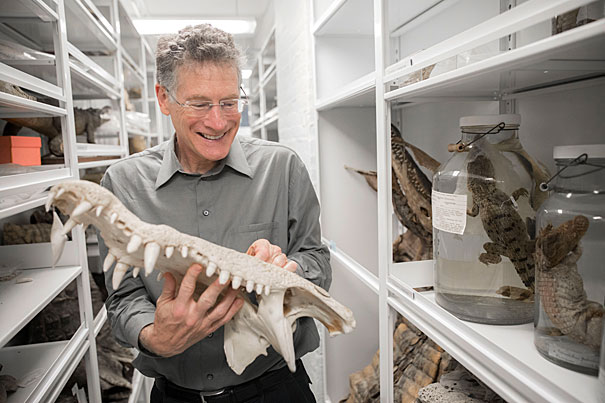
-
Another climate change concern: Forced migration
Experts trace the fingerprints of climate change in the world’s mass migration crises, saying that the effects of shifting norma appear to play a role.

-
Feeling woozy? Time to check the tattoo
Harvard and MIT researchers have developed smart tattoo ink capable of monitoring health by changing color to tell an athlete if she is dehydrated or a diabetic if his blood sugar rises.

-
Calculator shows hidden costs of fatigued workforce
The new Fatigue Cost Calculator demonstrates the physical and financial tolls of sleep deficiency in the U.S.

-
Retracing Romer’s footsteps
A Harvard team finds a rare fossil in Nova Scotia while retracing the footsteps of Alfred Romer, the paleontologist who identified a gap in the record from the period when animals first crawled out of the ocean and began to walk on four legs.

-
A long way from PBJ
One of the biggest challenges facing school cafeterias is making healthier food taste better, a task that can be aided by collaborating with professional chefs, a Harvard nutrition expert said.

-
Making eight legs look like six
Using high-speed cameras, Harvard researchers have shown that ant-mimicking jumping spiders don’t walk on six legs in an attempt to appear more ant-like, but instead walk with all eight and take tiny, 100-millisecond pauses to lift their front legs to make them resemble ant antennae.
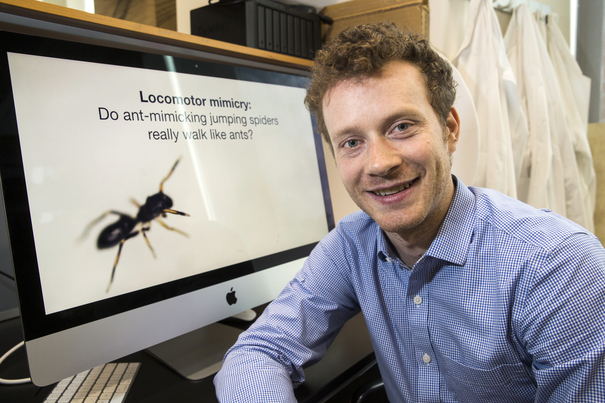
-
Making sense of survival
A Harvard study suggests a process known as synergistic epistasis enables humans to survive with an unusually high mutation rate.
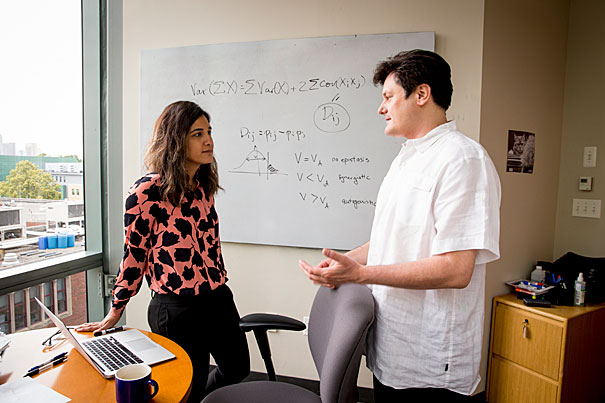
-
Assumptions of how antibiotics work may be incorrect
Researchers have discovered that bacteria respond to antibiotics very differently — exactly opposite, in fact — inside the body than they do on a petri dish.
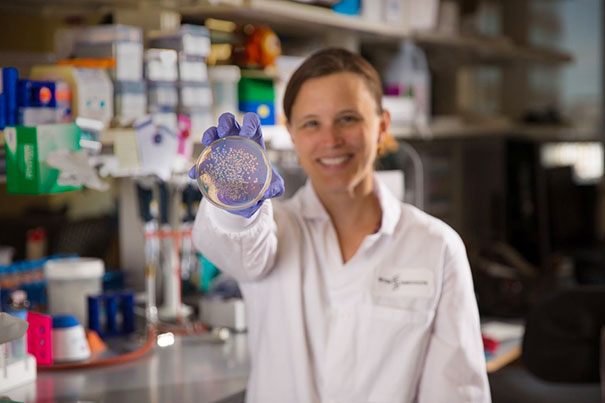
-
Role of gut bacteria in averting Type 1 diabetes
Study finds guardian gene that protects against Type 1 diabetes and other autoimmune diseases exerts its pancreas-shielding effects by altering the gut microbiota.
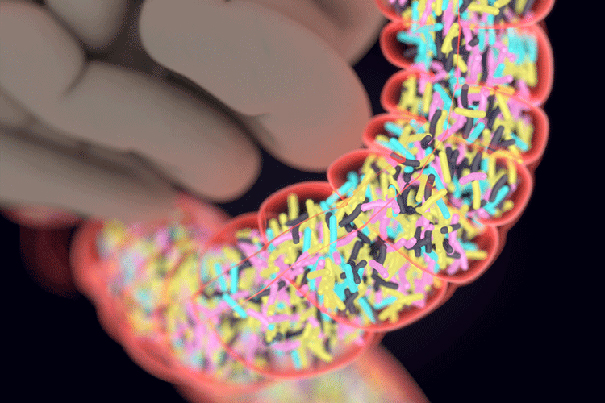
-
Making the most of a dead lizard in the snow
The extreme winter of 2013–2014 created conditions for a Harvard grad student to expand his work on green anole lizards into study of natural selection in action.

-
Mimicking birdsongs
After discovering that the complexity inherent in birdsongs results from a controllable instability in the organ used to create them, researchers at the Harvard Paulson School have developed a mimicking device.

-
Inflammation reduction cuts risk of heart attack, stroke
Brigham and Women’s Hospital’s clinical trial confirms its “inflammatory hypothesis” — reducing inflammation cuts the risk of future cardiovascular events.
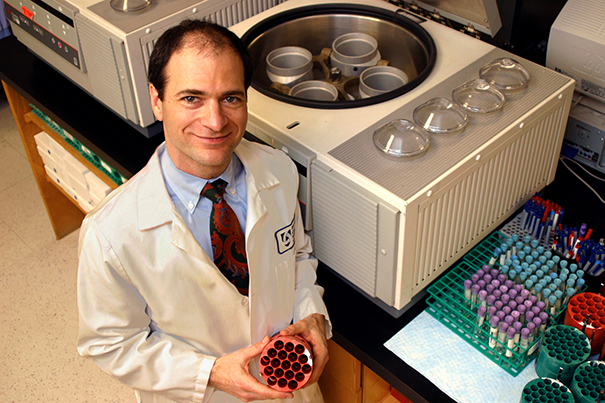
-
Brain may be far more flexible than thought
New research from Harvard Medical School casts doubt on the prevailing model of memory formation, suggesting that the brain may be far more flexible.
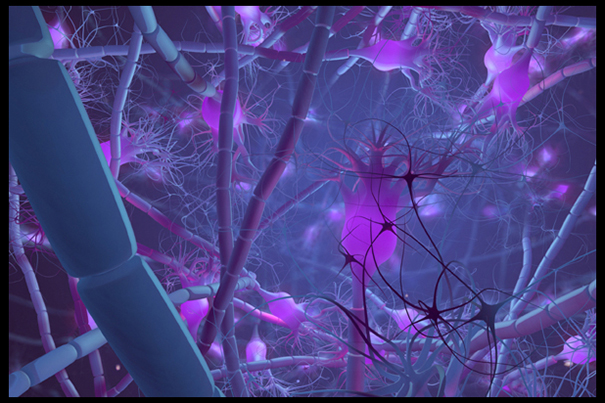
-
Cancer alarm at the firehouse
Harvard researchers have teamed with local departments to examine cancer hazards contained in firehouse life.

-
Bad knees through the ages
A new Harvard study is the first to definitively show that the prevalence of knee osteoarthritis has dramatically increased in recent decades.
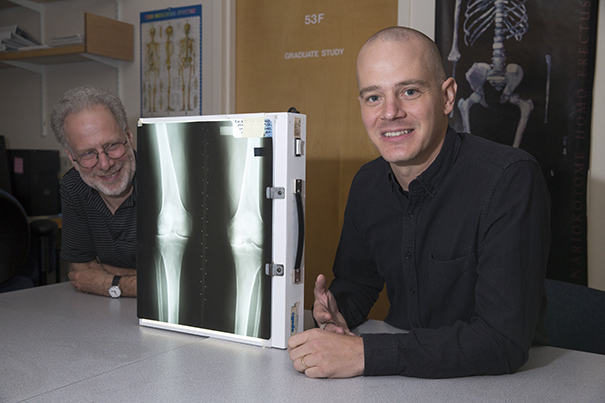
-
Seeing promise, and limits, in embryo edit
The disease-targeting embryo edit at Oregon Health & Science University signals a path for “those rare situations where the genes really are life-threatening,” says Harvard bioethicist Robert Truog.
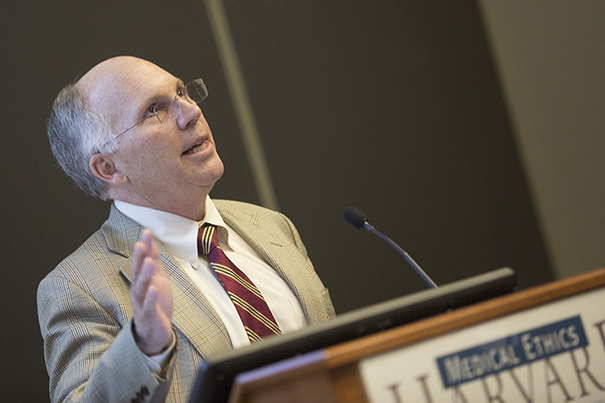
-
Buried in health care imbroglio, trillion-dollar questions
After the Senate’s failure to reform Obamacare, Harvard economist David Cutler assesses what occurred and what the future might hold.

-
Digitization uncovers pre-WWII fossil loan
Digitization of Harvard’s fossil insect collection produced a surprising twist: The return to Germany of hundreds of Eocene insects frozen in amber.

-
First draft of a genome-wide cancer ‘dependency map’
Researchers have identified more than 760 genes upon which cancer cells of multiple types are strongly dependent for their growth and survival.
